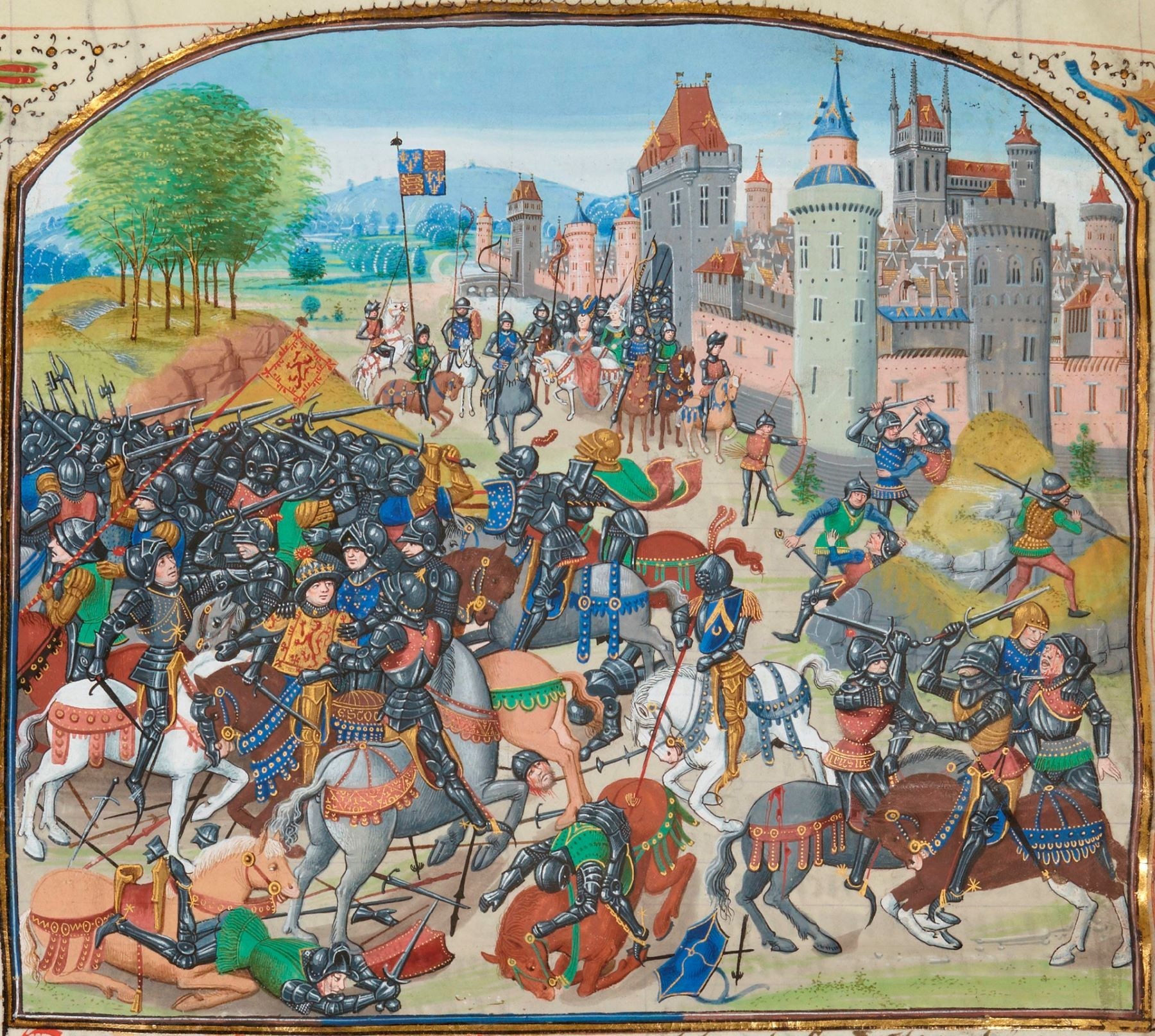Michael Rosen explains the history of the word "war"

War, 12th century: Hostile contention by means of armed forces, carried on between nations, states or rulers, or between parties in the same nation or state.
The word “war” started being used by people speaking Old English in around 1050, when it was “wyrre’” or “werre” – of Norman French origin, which explains the initial “w”. That’s because elsewhere in Europe people were using “guerre”, but apart from the borrowing of “guerilla”, English speakers dropped the initial “g”. Similarly, they chose not to adopt an Icelandic (Viking) word for “war” – ófriðr, which means “un-peace”, though we’ve found the Old Norse word “berserkr” useful, which is probably from “bear shirt”, a metaphor for “raging warrior”.
The first written source for “war” in the Oxford English Dictionary comes from the Anglo-Saxon Chronicle for the year 1140, when there was “micel uuerre betuyx þe king & Randolf”. (Notice our “w” really was a double-u before it became a “w”.)
Shakespeare had a lot to say on the subject, though one of his famous phrases “O war, thou son of hell” is said by a not very famous character, Young Clifford, in Henry VI. People often remember the “Once more unto the breach” speech from Henry V, but in that play we also hear a soldier called Williams say, “But if the cause be not good, the king himself hath a heavy reckoning to make, when all those legs and arms and heads, chopped off in battle, shall join together at the latter day and cry all, ‘We died at such a place…’” It’s the Prussian General Carl von Clausewitz (1780-1831) who is credited with one of the most quoted lines on conflict: “War is the continuation of policy [by] other means.”
Some wars aren’t wars. Apparently. Even when a nation has declared war, as Israel did after 7 October 2023, politicians often seem reluctant to actually use the term. Some journalists (though not the BBC) are using phrases like “combat zone” rather than “war zone”. Perhaps there is a sense that a “real” war is one where two nations battle each other, technically not the case at the time of writing. Yet the obvious constant is that large numbers of people use weapons to try to kill each other.
This article is from New Humanist’s winter 2024 issue. Subscribe now.

